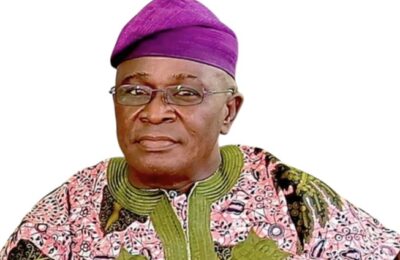Introduction
In recent years, Nigeria has experienced a disturbing shift in its societal fabric—an alarming phenomenon that can be characterized as institutionalized anomie. This term, originally conceptualized by sociologist Robert K. Merton (1938), describes a state where social norms and institutional controls weaken, leading to increased deviance and social disorder. As these structures weaken, a new pattern of behaviors and crimes emerges, reflecting a society grappling with moral decay and a loss of collective purpose.
The Rise of Cybercrime and Digital Malfeasance
One of the most conspicuous manifestations of this trend is the proliferation of cybercrime, often dubbed “Yahoo Yahoo” in local parlance. Nigeria has become notorious as a hub for cybercriminal activities, with the Nigerian Cybercrime Unit (NCCU) reporting a significant increase in cases involving identity theft, phishing, and online scams (NCCU Annual Report, 2022). The ease of access to the internet, coupled with inadequate regulatory oversight, has fostered an environment where digital malfeasance thrives. According to Alhassan and Ibrahim (2020), the normalization of cybercrime in Nigeria reflects broader societal issues related to weak institutional controls and moral disengagement. According to a report, in the first quarter of 2025, Nigeria experienced a significant rise in data breaches with at least 119,000 users account affected(Tribute online, (10 May, 2025) . According to EFCC chairman as reported by Punch Newspapers (23 October, 2024), Nigeria looses over $500 to cybercrime annually.
Nudity and Prostitution: The Decline of Moral Restraint
Alongside digital crimes, Nigeria witnesses an alarming increase in public nudity and the normalization of prostitution. Researchers like Oladipo (2019) have observed that economic hardship, social dislocation, and social media influence contribute to a decline in moral restraint among youth. Platforms like Instagram and TikTok have been criticized for glamorizing nudity and sex work, creating a culture where traditional taboos are undermined (Akinrinade, 2021). This trend indicates a breakdown of societal norms that traditionally regulated sexuality.
Gambling and the Celebration of Ill-Gotten Wealth
Gambling has become a prevalent vice, with betting shops and online platforms operating with minimal regulation. The Nigerian National Lottery Regulatory Commission (NILORC, 2021) reports a surge in betting activities, often linked to youth unemployment and economic despair. This culture dovetails with societal obsession with wealth accumulation, where displays of affluence—regardless of their origin—are celebrated. As noted by Ojo (2018), such trends reinforce a materialistic worldview that prioritizes wealth over morality.
Drug and Substance Abuse: A Growing Menace
Another alarming aspect of Nigeria’s social decline is the rising prevalence of drug and substance abuse. The National Agency for Food and Drug Administration and Control (NAFDAC) reports a steady increase in the abuse of substances such as cannabis, tramadol, codeine, and methamphetamine among Nigerian youths (NAFDAC, 2022). Substance abuse often acts as a catalyst for criminal behavior, mental health issues, and social instability. Scholars like Eze (2022) argue that the widespread drug epidemic exacerbates social disintegration, fosters violent crime, and hampers national development. The easy availability of illicit drugs, coupled with lax enforcement, has contributed significantly to this trend, which undermines societal stability.
The Morbid Worship of Wealth and Materialism
In Nigeria’s socio-cultural landscape, the celebration of wealth—regardless of its source—has become a defining feature of modern society. The media and entertainment industries play a significant role in promoting this narrative. Obasi (2020) highlights how celebrities and social media influencers often showcase ostentatious lifestyles, fostering a culture that equates success with material possessions. This normalization of materialism and the uncritical admiration of wealth obtained through dubious means contribute to moral decline and social disintegration.
Broader Societal Impacts
This pattern of institutionalized anomie results in a weakened social contract. The erosion of traditional institutions—family, religion, government—exacerbates social disintegration. The Nigerian Police Force’s annual crime statistics (Nigerian Police Force, 2023) show rising incidences of cybercrime, fraud, drug abuse, and other social vices. Scholars like Eze (2022) argue that these trends reflect systemic failures that undermine social cohesion and promote deviance.
Addressing the Trend
To reverse this trend, Nigeria must implement reforms that strengthen institutional integrity, enforce laws against illicit activities, and promote moral education. The National Orientation Agency (NOA) has a crucial role in fostering civic responsibility (NOA Report, 2021). Additionally, investing in youth empowerment, digital literacy, and community engagement can help redirect energies toward constructive pursuits (UNDP Nigeria, 2022). As Ogbonnaya (2020) emphasizes, fostering a culture of integrity over materialism is vital for societal rebuilding.
Conclusion
The phenomenon of institutionalized anomie in Nigeria reflects deeper societal issues—poverty, inequality, weak institutions, and erosion of moral values. The rising tide of cybercrime, nudity, prostitution, gambling, drug abuse, and the celebration of ill-gotten wealth underscores the urgent need for systemic intervention. Recognizing these trends is the first step toward addressing them. Nigeria’s future depends on its ability to reinforce social norms, uphold the rule of law, and cultivate a society where morality, integrity, and social responsibility are prioritized. Only then can the nation hope to reverse this ugly trend and build a more just and cohesive society.
– Comrade Opaluwa Eleojo Simeon, PhD Student in Criminology and Security Studies, National Open University of Nigeria.
References
Alhassan, S. & Ibrahim, T. (2020). Cybercrime and Society in Nigeria: A Socio-Legal Perspective. Journal of Nigerian Law and Society, 15(2), 45-67.
Akinrinade, S. (2021). Social Media and the Decline of Morality among Nigerian Youths. African Journal of Media Studies, 12(1), 23-38.
Nigerian Cybercrime Unit (NCCU). (2022). Annual Crime Report. Nigerian Police Force.
Nigerian National Lottery Regulatory Commission (NILORC). (2021). Gambling Trends in Nigeria. Government Publication.
Nigerian Police Force. (2023). Crime Statistics and Trends. Official Report.
National Agency for Food and Drug Administration and Control (NAFDAC). (2022). Annual Substance Abuse Report. NAFDAC Publications.
Obasi, O. (2020). Materialism and Social Values in Nigeria. Lagos: University Press.
Ojo, O. (2018). Wealth and Morality in Contemporary Nigeria. Journal of African Studies, 10(4), 89-105.
Oladipo, A. (2019). Youth and Moral Decay in Nigeria. Social Science Research, 8(3), 101-118.
Ogbonnaya, C. (2020). Rebuilding Social Trust in Nigeria. Nigerian Journal of Development, 14(1), 56-72.
United Nations Development Programme (UNDP Nigeria). (2022). Youth Empowerment and Societal Development. UNDP Reports.
Eze, M. (2022).
Punch Newspapers (2024, October 23).
Social Cohesion and Crime in Nigeria. African Journal of Sociology, 17(2), 144-160.
Merton, R. K. (1938). Social Structure and Anomie. American Sociological Review, 3(5), 672-682.
Tribune Online. (2025, May 10).




